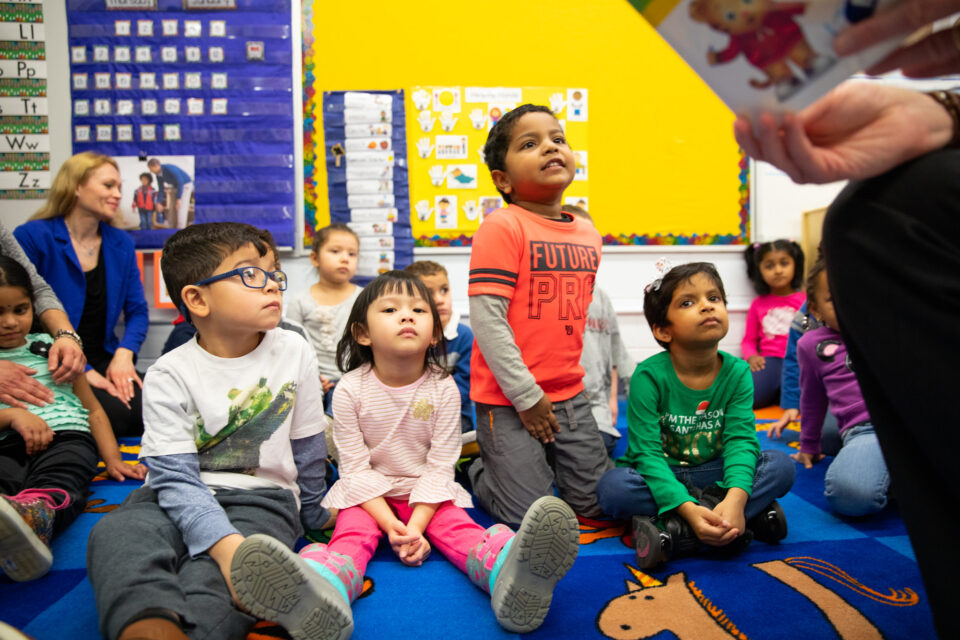
Top Ten Pro-Tips for Special Needs Schools Seeking New Students
May 11, 2018
“This Is Not the ‘Fairer’ New Jersey Promised by Gov. Murphy”
May 15, 2018Getting the Facts Straight on New Jersey Charter Schools: This Is No Time For a “Pause” On High-Quality Charter Growth
Donna Siminski is Director of Policy and Advocacy for the New Jersey Charter School Association with a focus on the policy issues impacting the the state’s charter schools. Donna works with members, charter families, and charter school professionals to advocate for high-quality charter schools and the children they serve.
Governor Murphy and Acting Commissioner Repollet are interested in New Jersey’s charter school facts and reviewing the current law & regulations. As this analysis proceeds, the central question should be: Why are so many parents deciding to enroll their children in charter schools in New Jersey? The simple answer is this: Charter schools throughout the state are providing a high-quality public education to students to best meet their individual needs.
Just last month, Governor Murphy stated that he wants to see a “common set of facts” about charter schools in the state. He also noted that, “if a school is high performing and kids are doing really well based on an objective set of facts, count me as all in.” Governor Murphy, at NJCSA, we are more than happy to provide the facts about charter schools in the Garden State.
Since 2012, the number of families choosing to attend a charter school in New Jersey has grown significantly, nearly doubling charter school enrollment to approximately 50,000 students statewide. The growth of the charter sector has been especially strong in the state’s urban centers, such as Newark and Camden, where about a third of public school students are enrolled in a public charter school. It’s abundantly clear that charter demand is high and continues to grow.
The majority of families selecting charter schools are living in communities with an extensive opportunity gap. 86% of charter school students are black or Hispanic and 72% of the students are economically disadvantaged – qualifying for free or reduced price lunch. Charter schools are providing much needed opportunities for families.
Charter elementary and middle schools have significantly closed the gap against the state average over the last six years. In 2012, the ELA proficiency gap was 13.1 percentage points compared to 4.2 percentage points in 2017. In 2012, the math proficiency gap was 10.2 percentage points compared to 4.4 percentage points in 2017. 
- Despite serving a much more disadvantaged population compared to the rest of the state, Newark charters in grades 3-8 outperformed the state average in mathematics and were even with the state average in ELA.
- Camden charters in grades 3-8 outperformed the Camden district schools by 21% points in ELA and 13% points in Math.
- Jersey City charters in grades 3-8 outperformed the Jersey City district schools by 8% points in both ELA and Math.
- Paterson charters in grades 3-8 outperformed the Paterson district schools by 20% points in ELA and 10% points in Math
- Trenton charters in grades 3-8 outperformed the Trenton district schools by 18% points in ELA and 21% points in Math.
2017 Graduation Rates
98% of Camden charter high school students graduated within 4 years – higher than the district average of 66% and the state average of 91%.
93% of Jersey City charter high school students graduated within 4 years – higher than the district average of 78% and on par with the state average of 91%.
97% of Paterson charter high school students graduated within 4 years – higher than the district average of 88% and the state average of 91%.
92% of Trenton charter high school students graduated within 4 years – higher than the district average of 70% and on par with the state average of 91%.
Fact 6: While charter schools are predominantly located in urban areas, charter schools, on average, are more racially/ethnically diverse* than their traditional district school counterparts (comparative districts).
Charter schools include some of the most racially/ethnically diverse schools in the entire state. 3 out of the top 10 most diverse public schools in NJ (out of 2,512 schools) are charter schools located in Jersey City- The Ethical Community Charter School, Learning Community Charter School, and the BelovED Community Charter School.
*A racially/ethnically diverse student population is defined as a school(s) having a higher Diversity Index score. The index measures this by computing the probability that any two students selected at random will belong to the same ethnic group. That probability is then normalized to produce a number between 0 and 1 with numbers closer to 0 representing lower diversity and numbers closer to 1 representing more diversity. The charter school average index score of 0.409 is higher than the comparative district score of 0.401 indicating that charter schools are more racially/ethnically diverse on average.
Fact 8: Charter schools are the most highly accountable public schools in New Jersey
- Charter schools run on performance contracts that focus on student outcomes.
- Charter schools receive annual audits conducted by NJDOE and an independent fiscal auditor based on the Performance Framework.
- If charter schools fail to provide a quality education to students, they are forced to close
- If traditional districts were measured against the standards within the Performance Framework, dozens of struggling districts would be forced to close.
While charters grew significantly under the Christie Administration, we know that the New Jersey Department of Education set an exceedingly high bar for charter quality, only permitting “high-performing” (in Governor’s Murphy’s words) schools to grow and have the privilege of serving more kids in the state. Schools that were low-performing were either denied expansion or closed. NJ DOE’s oversight process is one of the most rigorous in the nation and has raised the bar for all charter schools in the state. If district schools were held to the same standards, heads would roll, literally.
During this review of New Jersey’s charter law and regulations, we welcome the examination of the authorization and charter approval process. We believe that it will demonstrate a rigorous, criteria-based evaluation that focuses on students and academic outcomes above all else. Children must come first in our fight for educational equity for all students, regardless of zip code or birth circumstance. Charter schools that are changing the trajectory of lives for our most vulnerable students in cities like Newark, Camden, Trenton, Paterson, Jersey City, and Plainfield must be permitted to grow to ensure that all children get access to a thorough and efficient education.
While the charter sector is not perfect, it is an undeniable success for tens of thousands of students in New Jersey. As the state association for charter schools, we believe in a continuous improvement process and finding innovative solutions to complex problems. Let’s work together to find solutions that puts kids’ interests above those of adults.










